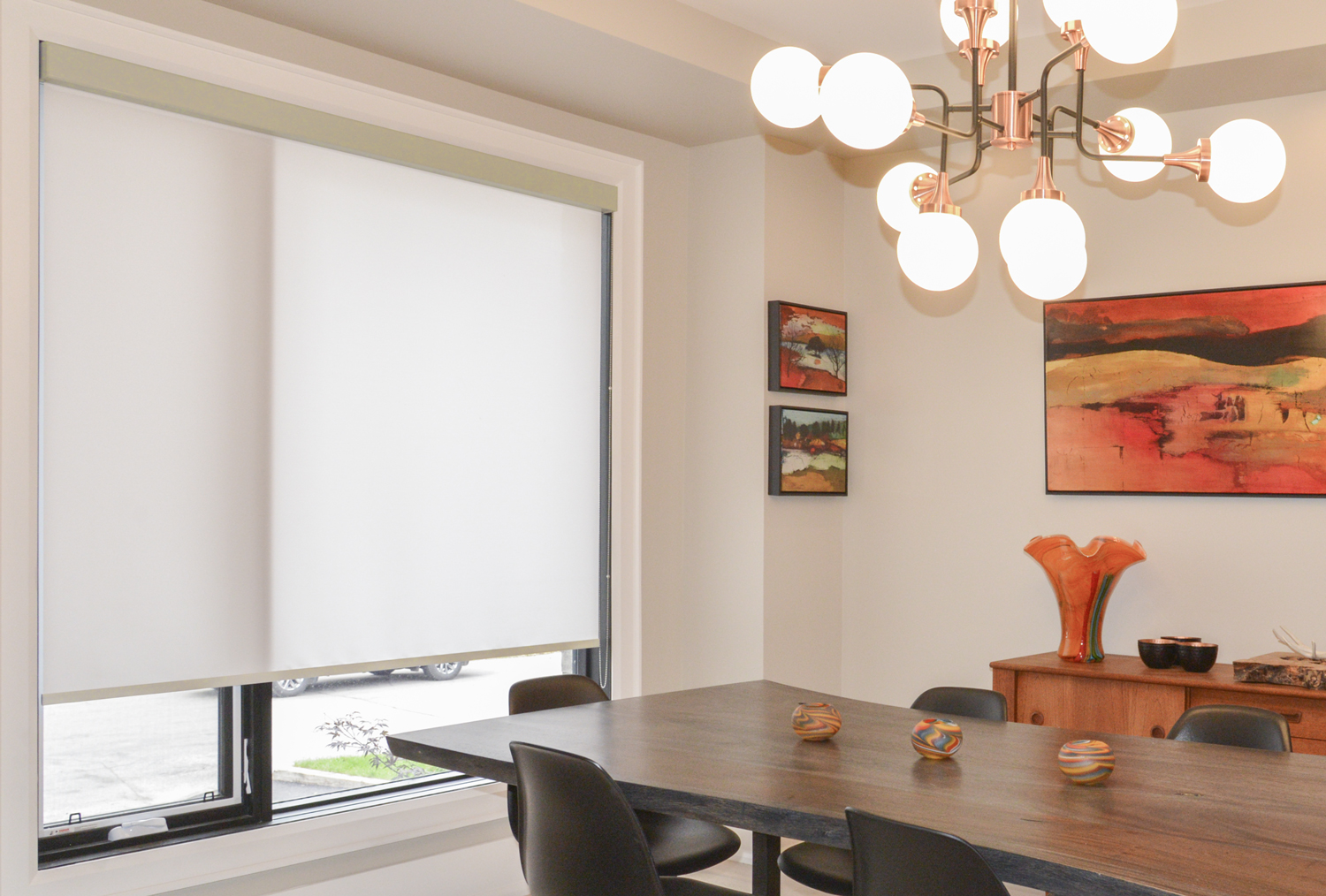Table of Contents
Choosing the right window treatment color is more than just a design decision—it impacts the mood, functionality, and overall aesthetic of your space. Whether you’re opting for blinds, curtains, shades, or drapes, the color you choose can brighten a room, create a cozy atmosphere, or enhance privacy and energy efficiency.
But with so many options, how do you know what works best? This guide will help you navigate the psychology of color, light interaction, décor coordination, layering techniques, and trending shades to ensure your window treatments complement your home beautifully.
Understanding the Role of Color in Interior
Psychological Effects of Colors
- Warm Colors (Reds, Oranges, Yellows) – Energizing and welcoming, ideal for kitchens, dining rooms, and living areas.
- Cool Colors (Blues, Greens, Purples) – Soothing and calming, perfect for bedrooms and meditation spaces.
- Neutral Colors (Whites, Beiges, Grays, Taupes) – Versatile and timeless, great for balanced, clean aesthetics.
How Color Affects Room Perception
- Lighter shades – Reflect light, making rooms feel larger and brighter. Ideal for smaller rooms or those with limited sunlight.
- Darker hues – Absorb light, adding intimacy and warmth to larger spaces.
Tip: Choose colors based on both aesthetics and the function of the space.
Matching Window Treatments to the Room’s Function
Living Room: The Social Hub
- Light Neutrals: Open, airy, and inviting.
- Earthy Tones: Terracotta or olive for warmth and depth.
- Statement Colors: Use bold hues like mustard or deep blue for a focal point.
Bedroom: A Relaxing Retreat
- Soft Blues & Greens: Encourage relaxation.
- Muted Neutrals: Cozy and calming.
- Dark Colors: Best for blackout shades to block light.
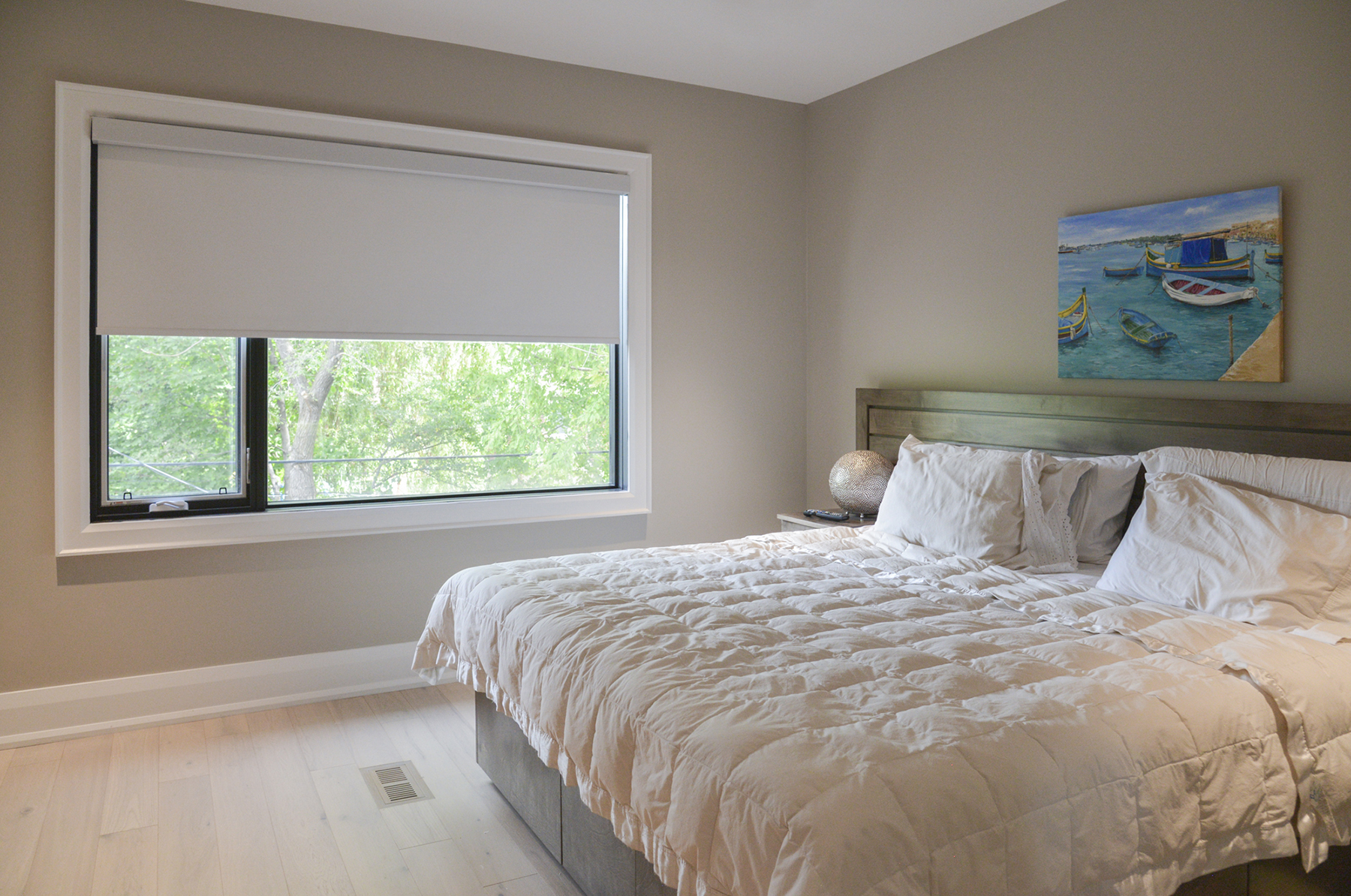
Tip: Want more help choosing the right type of shade for each space? Check out our complete guide to the best window shade styles by room.
Kitchen: Bright and Inviting
- Sunny Yellows & Warm Beiges: Energizing and cheerful.
- Crisp Whites & Grays: Fresh and modern.
- Pops of Color: Use sage or coral for personality.
Home Office: Productivity and Focus
- Cool Blues & Greens: Aid focus and calm.
- Warm Neutrals: Comforting yet clean.
- Deep Colors: Sophisticated and great for glare control.
Bathroom: Spa-Like Serenity
- Soft Whites & Pastels: Light and refreshing.
- Warm Neutrals: Clean and elegant.
- Deep Tones: Seafoam or teal adds contrast.
Considering Light & Privacy Needs
Bright & Open Spaces
- Light Colors: Whites and pastels to reflect light.
- Semi-Sheers: Provide privacy while maintaining brightness.
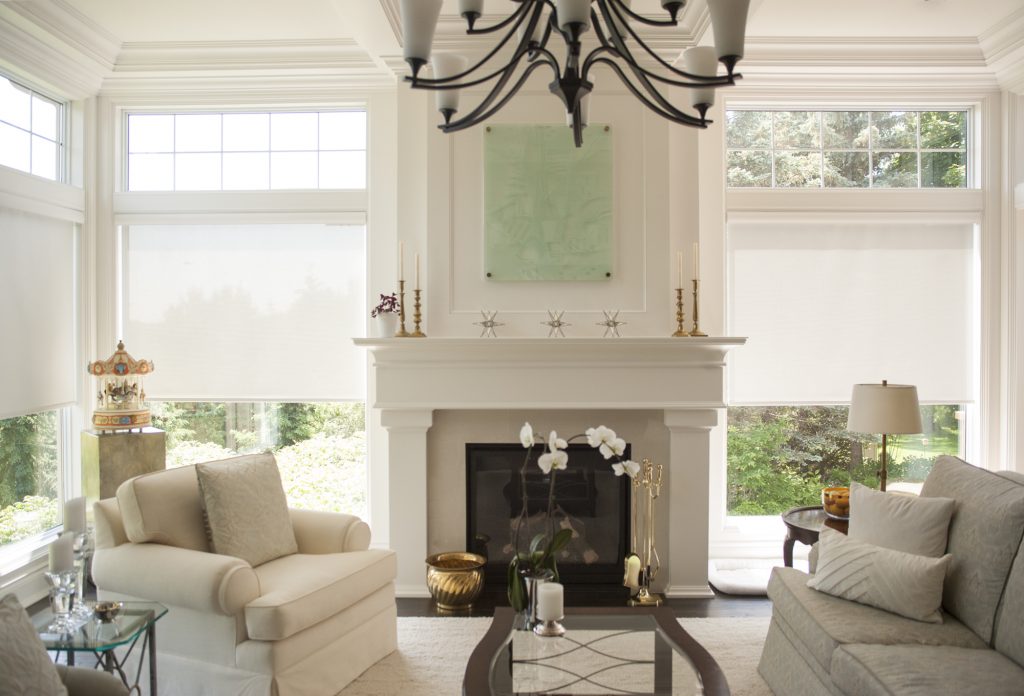
Cozy & Dimly Lit Spaces
- Darker Shades: Add warmth and reduce glare.
- Blackouts: Perfect for restful bedrooms.
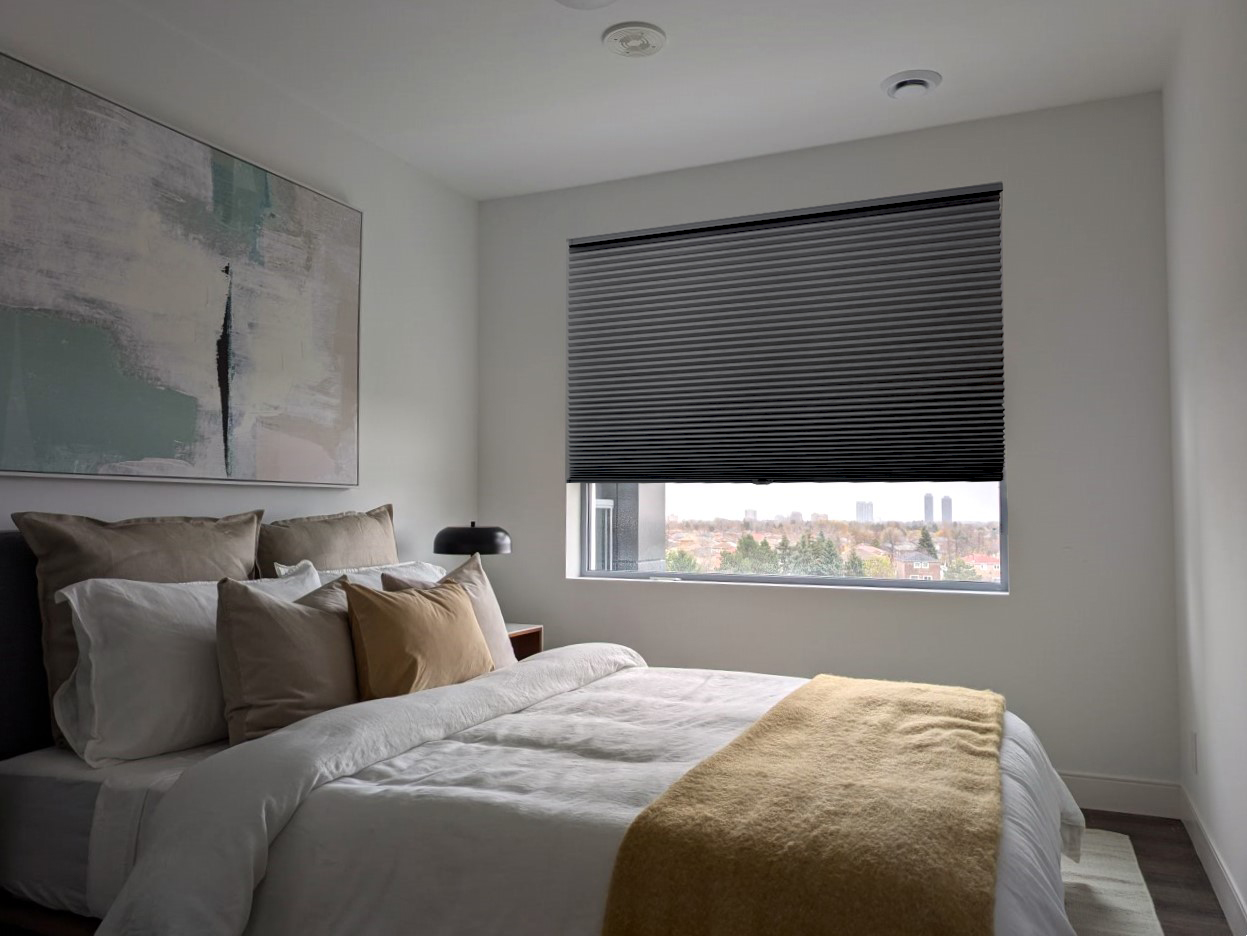
Privacy Considerations
- Street-Facing Windows: Blackout shades for visibility control.
- High-Rise Units: Light-filtering fabrics for balance.
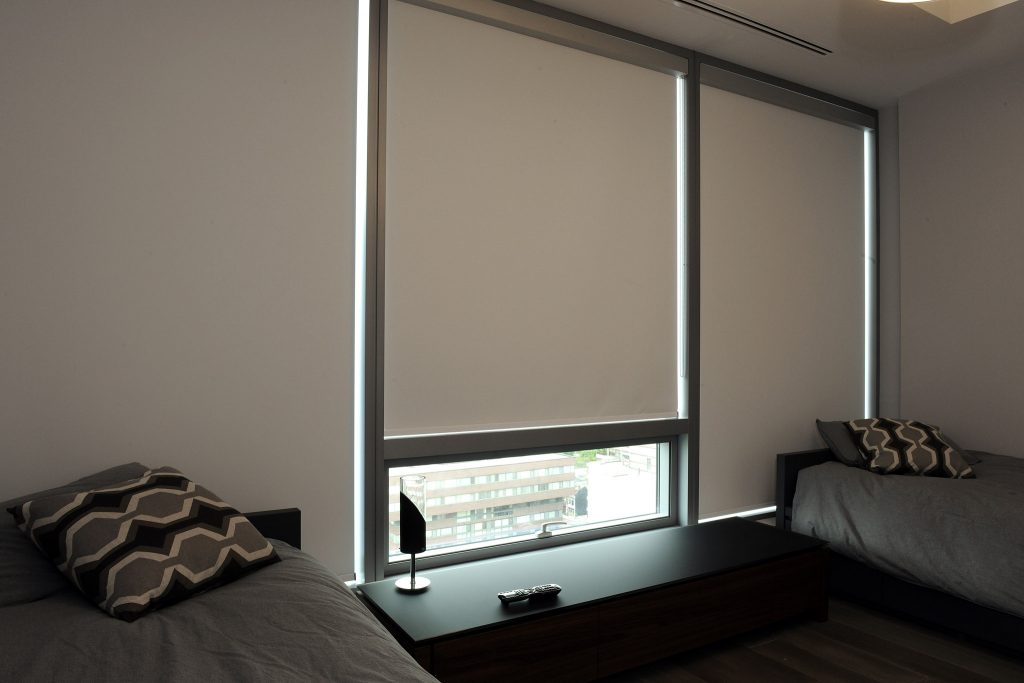
Tip: If privacy is a top concern—especially for street-facing windows—check out our top shade picks for privacy, style, and light control.
Coordinating with Your Home’s Color Palette
Matching vs. Contrasting Colors
- Match Your Walls: Seamless and elegant.
- Contrast the Room: Adds depth and character.
Pairing with Flooring & Furniture
- Dark Floors: Use warm or light shades for contrast.
- Light Flooring: Add richness with darker colors.
- Bold Furniture: Let shades be the neutral background.
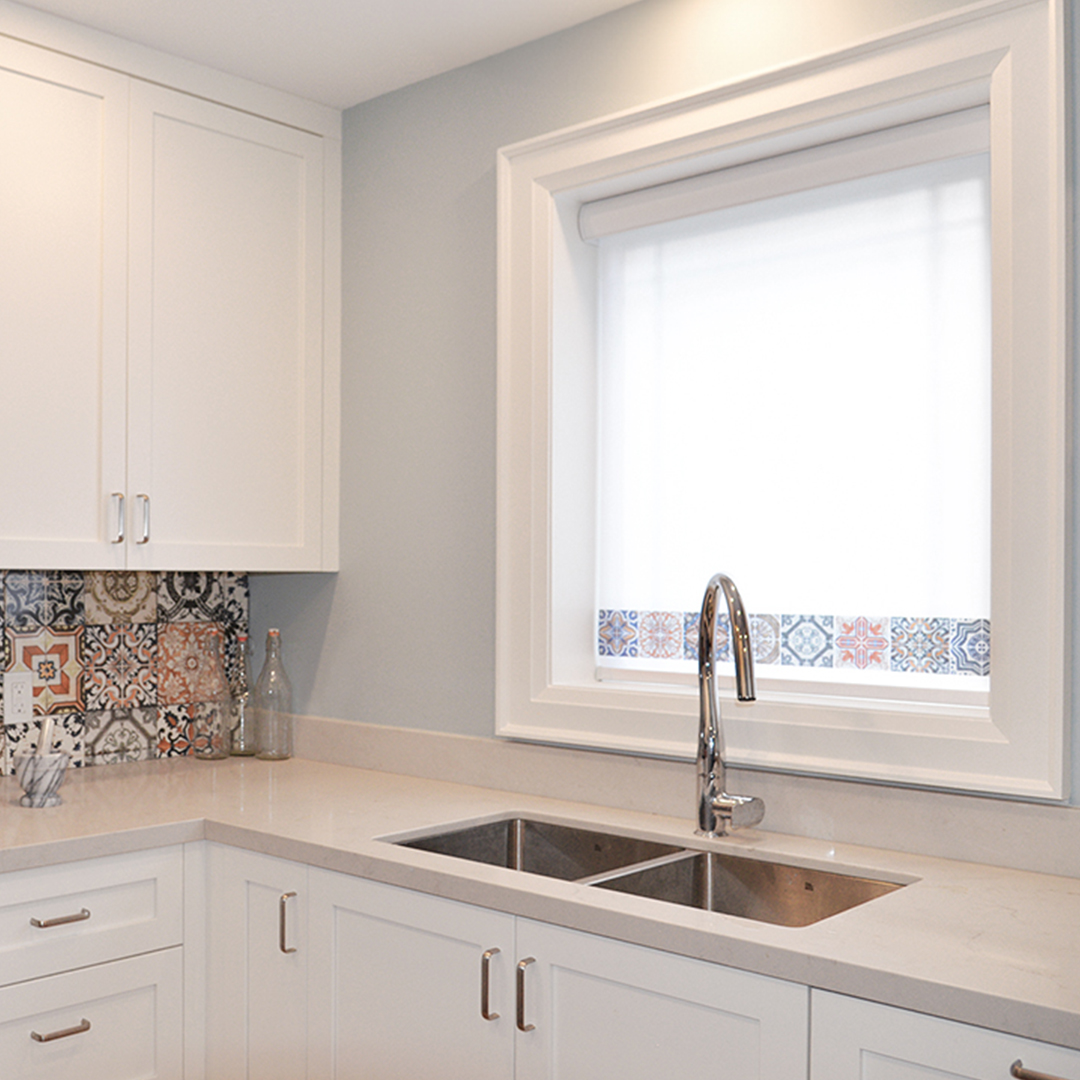
Trending Colors
- Earthy Tones: Terracotta, olive, and warm browns
- Soft Neutrals: Greige, taupe, ivory
- Muted Blues & Greens: For a coastal or spa-like vibe
Layering Window Treatments for Style and Function
- Sheer + Blackout: Perfect for bedrooms.
- Roller + Drapes: Functional and stylish.
- Roman + Valance: Classic layered elegance.
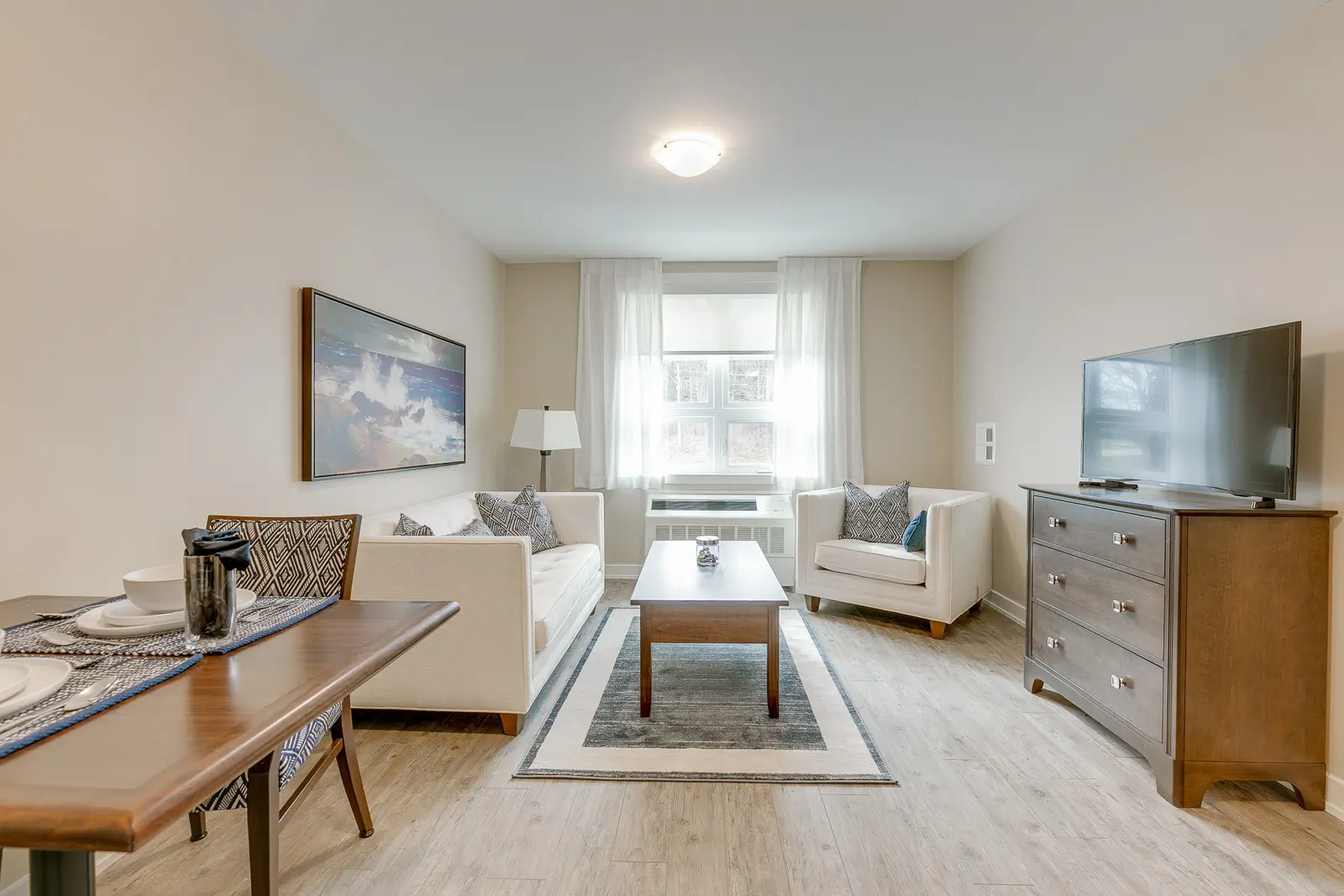
Tip: If you’re exploring shade layering and trims, don’t miss our guide on unique shade styles and accessories that can elevate your space.
Using Color to Influence Room Dimensions
- Vertical Stripes: Make ceilings appear higher.
- Floor-to-Ceiling Drapes: Draw the eye upward.
- Light Colors: Expand the room visually.
- Dark Shades: Add intimacy and enclosure.
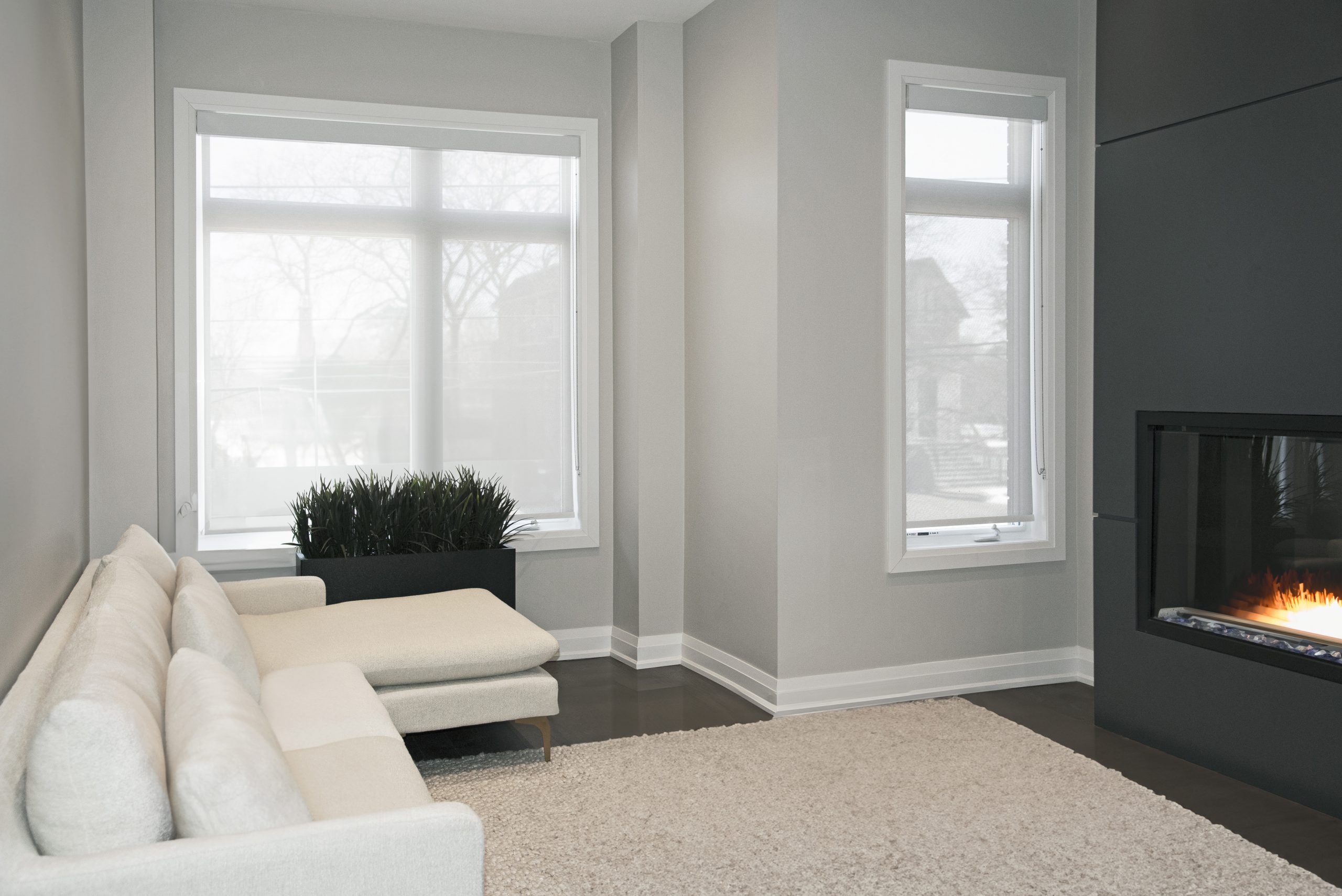
Color Choices for Climate and Weather
- Hot Climates: Use cool, reflective colors like white and blue.
- Cold Climates: Use warm, dense shades to retain heat.
Tip: Choose dual-layered or insulated options for seasonal versatility.
Final Thoughts: Finding Your Perfect Shade
- Warm tones energize social spaces.
- Cool tones promote calm in bedrooms.
- Neutrals work anywhere and always stay in style.
- Light shades make small rooms feel open.
- Dark tones create intimacy and contrast.
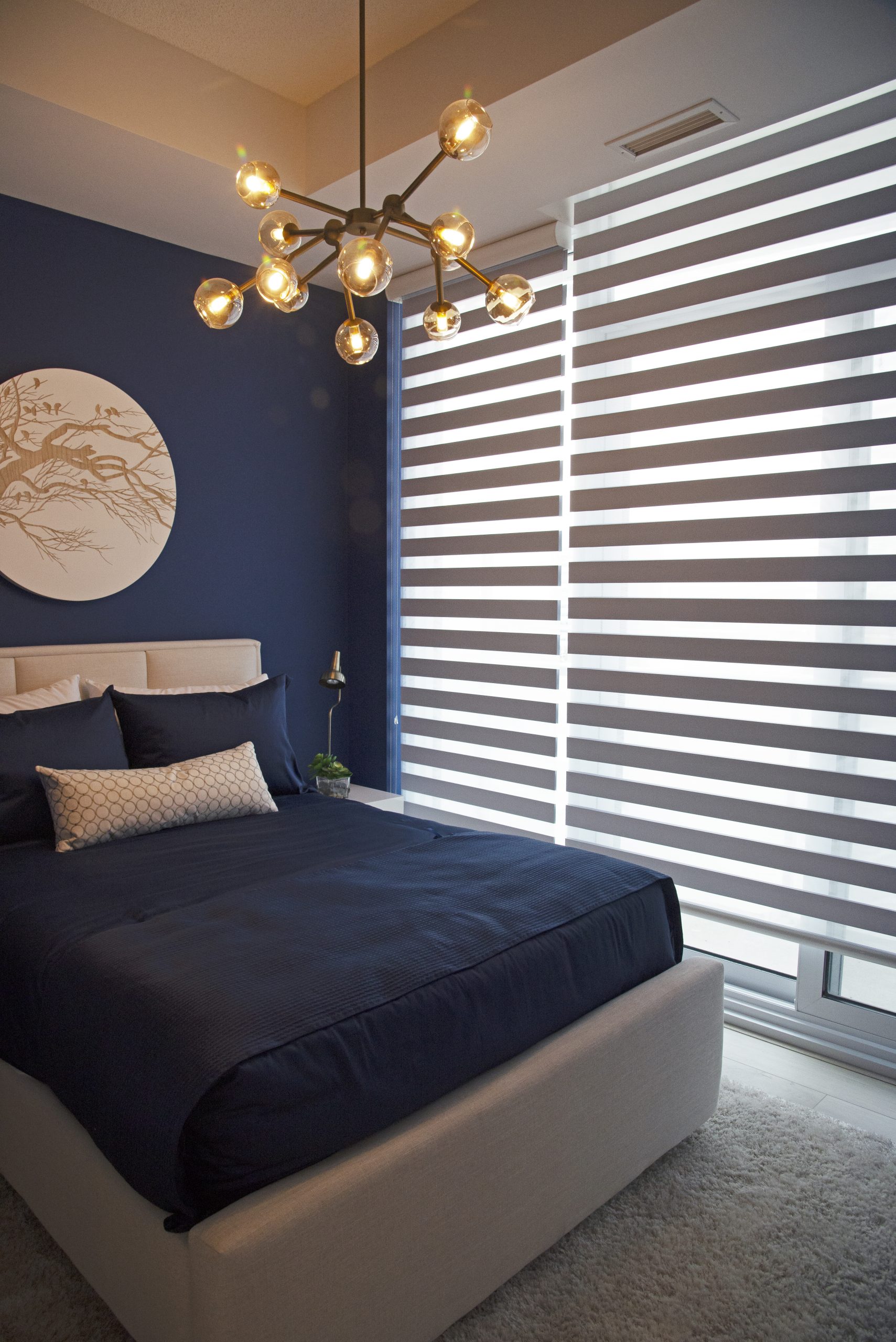
Tip: Always test swatches in your room’s actual lighting before committing.
At the end of the day, trust your instincts and choose a color that makes you feel at home. Your window treatments should reflect your personal style while serving a purpose—and with the right shade, your windows become a standout design feature in any room.
Want a more tailored approach? Learn why custom window shades are worth the investment—or explore how energy-efficient shades impact your space year-round.


